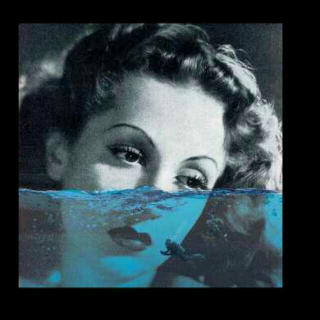
介绍:
《梦游人谣 》◎费德里科・加西亚・洛尔迦(西班牙)
绿啊,我多么爱你这绿色。
绿的风,绿的树枝。
船在海上,
马在山中。
影子缠在腰间,
她在阳台上做梦。
绿的肌肤,绿的头发,
还有银子般清凉的眼睛。
绿啊,我多么爱你这绿色。
在吉普赛人的月亮下,
一切都望着她,
而她却看不见它们。
绿啊,我多么爱你这绿色,
霜花的繁星
和那打开黎明之路的
黑暗的鱼一起到来。
无花果用砂纸似的树枝
磨擦着风,
山,未驯服的猫
耸起激怒的龙舌兰。
可是谁将到来?从哪儿?
她徘徊在阳台上,
绿的肌肤,绿的头发,
梦见苦涩的大海。
——朋友,我想
用我的马换你的房子,
用我的马鞍换你的镜子,
把我的短刀换你的毛毯。
朋友,我从卡伯拉关口流血回来。
——要是我办得到,年轻人,
这交易一准成功。
可是我已不再是我。
我的房子也不再是我的。
——朋友,我要善终在
我自己的铁床上,
如果可能,
还得有细亚麻被单。
你没有看见我
从胸口到喉咙的伤口?
——你的白衬衫上
染了三百朵褐色玫瑰,
你的血还在腥臭地
沿着你腰带渗出。
但我已不再是我,
我的房子也不再是我的。
——至少让我爬上
这高高的阳台;
让我上来,让我
爬上那绿色阳台。
月亮的阳台,
那儿水在回响。
于是这两个伙伴
走向那高高的阳台。
留下一缕血迹。
留下一缕泪痕。
许多铁皮小灯笼
在屋顶上闪烁。
千百个水晶的手鼓,
在伤害黎明。
绿啊,我多么爱你这绿色,
绿的风,绿的树枝。
两个伙伴一起上去。
长风在品尝
苦胆薄荷和玉香草的
奇特味道。
朋友,告诉我,她在哪儿?
你那苦涩姑娘在哪儿?
她多少次等候你!
她多少次等候你,
冰冷的脸,黑色的头发,
在这绿色阳台上!
那吉普赛姑娘
在水池上摇曳。
绿的肌肤,绿的头发,
还有银子般清凉的眼睛。
月光的冰柱
在水上扶住她。
夜亲密得
象一个小广场。
醉熏熏的宪警,
正在敲门。
绿啊,我多么爱你这绿色。
绿的风,绿的树枝。
船在海上,
马在山中。
《梦游人谣》(Somnambule Ballad)
Federico García Lorca
Green, how I want you green.
Green wind. Green branches.
The ship out on the sea
and the horse on the mountain.
With the shade around her waist
she dreams on her balcony,
green flesh, her hair green,
with eyes of cold silver.
Green, how I want you green.
Under the gypsy moon,
all things are watching her
and she cannot see them.
Green, how I want you green.
Big hoarfrost stars
come with the fish of shadow
that opens the road of dawn.
The fig tree rubs its wind
with the sandpaper of its branches,
and the forest, cunning cat,
bristles its brittle fibers.
But who will come? And from where?
She is still on her balcony
green flesh, her hair green,
dreaming in the bitter sea.
--My friend, I want to trade
my horse for her house,
my saddle for her mirror,
my knife for her blanket.
My friend, I come bleeding
from the gates of Cabra.
--If it were possible, my boy,
I'd help you fix that trade.
But now I am not I,
nor is my house now my house.
--My friend, I want to die
decently in my bed.
Of iron, if that's possible,
with blankets of fine chambray.
Don't you see the wound I have
from my chest up to my throat?
--Your white shirt has grown
thirsy dark brown roses.
Your blood oozes and flees a
round the corners of your sash.
But now I am not I,
nor is my house now my house.
--Let me climb up, at least,
up to the high balconies;
Let me climb up! Let me,
up to the green balconies.
Railings of the moon
through which the water rumbles.
Now the two friends climb up,
up to the high balconies.
Leaving a trail of blood.
Leaving a trail of teardrops.
Tin bell vines
were trembling on the roofs.
A thousand crystal tambourines
struck at the dawn light.
Green, how I want you green,
green wind, green branches.
The two friends climbed up.
The stiff wind left
in their mouths, a strange taste
of bile, of mint, and of basil
My friend, where is she--tell me--
where is your bitter girl?
How many times she waited for you!
How many times would she wait for you,
cool face, black hair,
on this green balcony!
Over the mouth of the cistern
the gypsy girl was swinging,
green flesh, her hair green,
with eyes of cold silver.
An icicle of moon
holds her up above the water.
The night became intimate
like a little plaza.
Drunken "Guardias Civiles"
were pounding on the door.
Green, how I want you green.
Green wind. Green branches.
The ship out on the sea.
And the horse on the mountain.
诗人简介
费德里科・加西亚・洛尔迦(Federico Garcia Lorca,1898-1936)是20世纪最伟大的西班牙诗人、“二七一代”的代表人物。这位“安达卢西亚之子”把他的诗同西班牙民间歌谣创造性地结合起来,创造出了一种全新的诗体:节奏优美哀婉,形式多样,词句形象,想象丰富,民间色彩浓郁,易于吟唱,同时又显示出超凡的诗艺。近70年来,他的诗歌作品对世界诗坛产生了巨大影响,难怪美国著名诗人勃莱谈到他的作品时说:“洛尔迦的诗歌佳作是人类智力的楷模。
大家还在听

